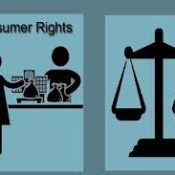
Navigating Tenancy Rights: A Comprehensive Guide to Eviction Laws
Eviction is a sensitive legal process that affects both landlords and tenants. Eviction Laws are designed to balance property rights with tenant protection, ensuring that disputes are resolved fairly and in accordance with the law. Understanding these laws is crucial for anyone involved in renting or leasing property.
Understanding Eviction Laws
Eviction Laws govern the circumstances under which a landlord can legally remove a tenant from a property and the procedures that must be followed. These laws aim to prevent unlawful evictions while protecting the rights of property owners.
Grounds for Eviction
Common grounds for eviction include:
Non-payment of rent
Breach of tenancy agreement terms
Property damage caused by the tenant
Illegal use of the premises
Landlord’s requirement of property for personal use or redevelopment
Legal Procedures for Eviction
Notice to Vacate – The landlord must issue a formal notice specifying the reason for eviction and a time frame for the tenant to vacate.
Filing an Eviction Suit – If the tenant does not comply, the landlord can approach the court to initiate formal eviction proceedings.
Court Hearing – Both parties present their case; evidence, tenancy agreements, and notices are reviewed.
Eviction Order – If the court rules in favor of the landlord, an official order is issued, allowing lawful eviction.
Enforcement – Law enforcement authorities may assist in executing the eviction if necessary.
Importance of Eviction Laws
Protects Tenant Rights – Ensures tenants are not forcibly or unfairly removed.
Safeguards Property Owners – Allows landlords to reclaim property when legally justified.
Maintains Legal Order – Provides a structured and fair process to resolve disputes.
Reduces Conflicts – Prevents harassment, misuse, or unlawful pressure on tenants or landlords.
Challenges in Eviction
Delays in Legal Proceedings – Court backlogs can prolong resolution.
Tenant Non-Compliance – Tenants may resist vacating, requiring enforcement intervention.
Misinterpretation of Laws – Lack of awareness about legal rights can complicate disputes.
Balancing Rights – Courts must carefully weigh landlord interests against tenant protection.
The Way Forward
Understanding and complying with eviction laws ensures that disputes are handled efficiently and legally. Both tenants and landlords benefit from awareness of their rights and obligations, fostering trust, fairness, and harmony in rental arrangements.
All Categories
Recent Posts
Consumer Protection Law: Safeguarding Consumer Rights
Tags





